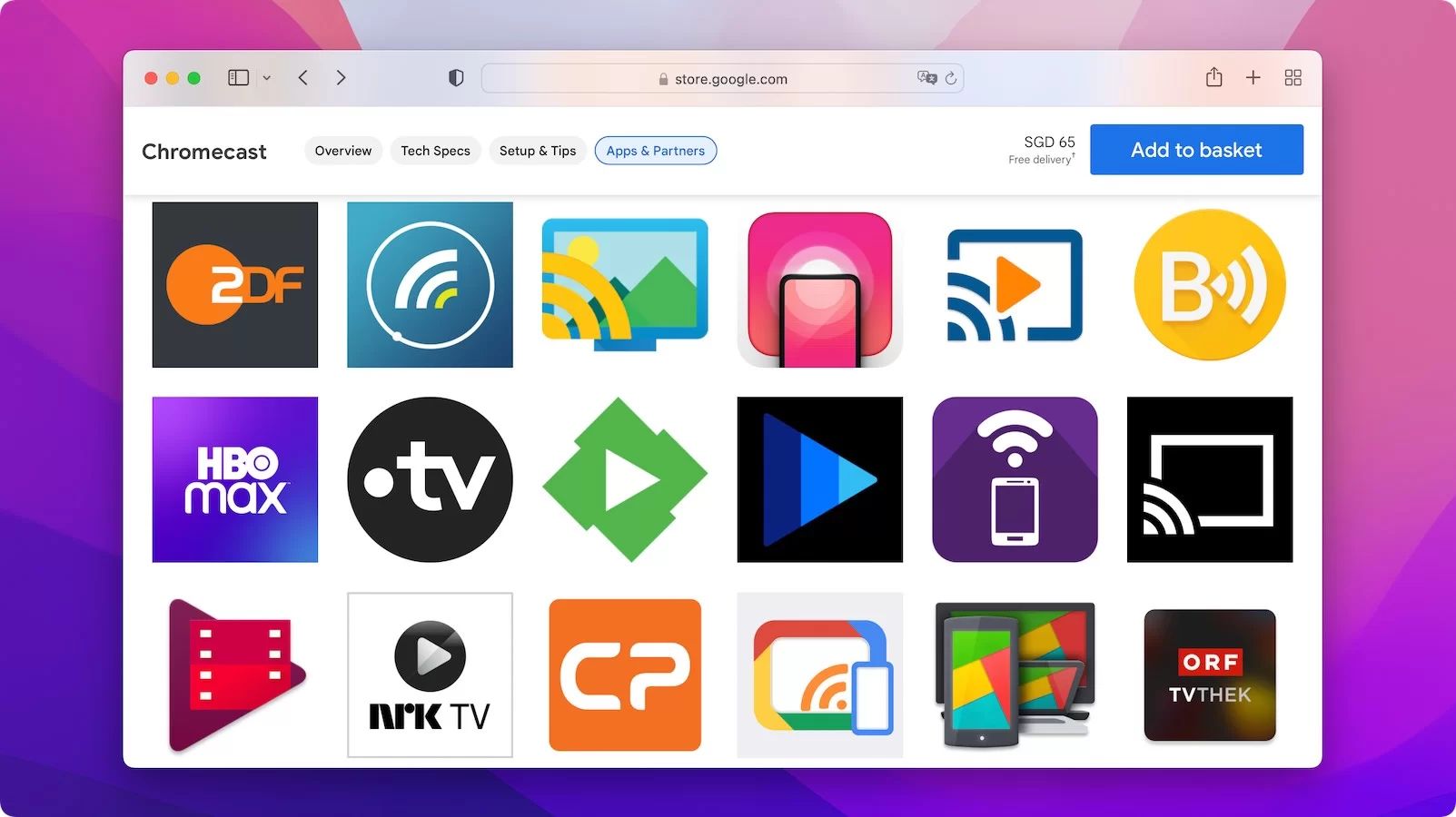Introduction
Welcome to the digital age, where the world is interconnected and data is being generated at an unprecedented rate. In the travel industry, this massive influx of data has given rise to the concept of “big data” – a term that refers to the vast amount of information collected and analyzed to gain insights and make informed decisions. In this article, we will explore the creation and utilization of big data in the travel industry, focusing on the various stages where data is generated and how it is leveraged by travel companies.
In today’s technologically advanced world, the travel industry has become increasingly data-driven. Travel companies are constantly collecting and analyzing vast amounts of data to better understand their customers, improve their services, and enhance the overall travel experience. From the moment a traveler starts planning a trip to the moment they return home, a wealth of data is being gathered and processed.
It is important to note that big data in the travel industry is not just about the volume of data being collected, but also about the variety and velocity of that data. The data collected includes not only traditional transactional information, such as booking and payment details, but also customer preferences, browsing behavior, social media interactions, and even sensor data from wearable devices. This wide variety of data allows travel companies to gain a deeper understanding of their customers and tailor their offerings to meet their specific needs and desires.
Throughout this article, we will delve into the different stages at which big data is created in the travel industry. We will explore how data is collected during the travel planning process, the information generated during the booking stage, the data gathered throughout the travel experience, and the data collected at the destination. We will also examine how travel companies utilize this big data to enhance their services, improve customer satisfaction, and drive their business forward.
So, fasten your seatbelts and get ready to embark on a journey into the world of big data in travel. With each passing day, the travel industry becomes more data-centric, and understanding how big data is created and utilized will give us valuable insights into the future of travel.
Definition of Big Data in Travel
Before we dive deeper into understanding the creation and utilization of big data in the travel industry, it is essential to establish a clear definition of what exactly big data means in this context.
Big data in travel refers to the collection, analysis, and utilization of large and varied sets of data to gain insights and make informed decisions in the travel industry. It encompasses the enormous volume of data generated at various stages of the travel process, including the booking stage, the travel planning process, and the travel experience itself.
What sets big data apart from traditional data is the three V’s: volume, variety, and velocity. Volume refers to the massive amount of data being generated and collected from numerous sources, including booking information, social media interactions, customer reviews, and more. Variety refers to the diverse types of data being collected, such as structured data (e.g., booking details) and unstructured data (e.g., customer feedback). Velocity relates to the speed at which data is being generated and analyzed, allowing travel companies to gain near real-time insights.
Big data in travel is not just about the sheer size of the data; it is about extracting meaningful information from that data and using it strategically to improve services, enhance customer experiences, and drive business growth. By analyzing this vast pool of data, travel companies can identify trends, understand customer preferences, predict demand, optimize pricing strategies, personalize marketing campaigns, and so much more.
Furthermore, big data in travel is closely associated with technologies such as machine learning, artificial intelligence, and predictive analytics. These technologies enable travel companies to leverage the power of big data to make data-driven decisions, automate processes, and provide highly personalized and tailored experiences to their customers.
All in all, big data in travel is a game-changer for the industry. It allows travel companies to transform the massive amount of data generated at different stages of the travel process into valuable insights that can drive innovation, improve operational efficiency, and ultimately, deliver unforgettable travel experiences for customers.
Collection of Data at Booking Stage
The booking stage is a critical point in the travel process where significant amounts of data are generated and collected. When travelers make a booking, they provide essential information, allowing travel companies to gather valuable data that can be used to personalize their experiences and improve customer service.
At the booking stage, travelers typically provide details such as their name, contact information, travel dates, destination, and preferred amenities. This transactional data provides travel companies with basic information about the customer and their travel preferences, allowing them to offer tailored recommendations and targeted promotions.
In addition to transactional data, travel companies often request additional information during the booking process. This can include dietary preferences, special requirements, loyalty program details, and even passport information, depending on the nature of the trip. This supplementary data helps travel companies enhance the overall travel experience by providing personalized services, such as arranging special meals or ensuring a seamless airport experience.
Moreover, with the rise of online booking platforms and mobile applications, travelers leave a digital footprint during the booking stage. This includes browsing behavior, search queries, and even abandoned bookings. By analyzing this digital data, travel companies can gain insights into travelers’ preferences, identify trends, and optimize their marketing strategies.
Furthermore, the booking stage also involves the collection of financial data. Travel companies need to gather payment details to process transactions and secure bookings. This data is crucial for ensuring secure transactions and preventing fraud.
It is important to note that data collection at the booking stage is governed by strict privacy regulations. Travel companies must ensure that they handle personal information responsibly and protect customer data against unauthorized access.
Overall, the collection of data at the booking stage provides travel companies with valuable insights into customer preferences, enabling them to personalize the travel experience, offer targeted promotions, and enhance customer satisfaction. By leveraging this data effectively, travel companies can streamline operations, optimize pricing strategies, and create memorable experiences for their customers.
Data Generated During the Travel Planning Process
The travel planning process is an exciting and crucial stage where travelers gather information, make decisions, and prepare for their upcoming trip. This stage generates a significant amount of data that can provide valuable insights to travel companies.
One of the primary sources of data during the travel planning process is online search behavior. Travelers browse travel websites, read reviews, compare prices, and search for information about destinations, accommodations, attractions, and more. This digital footprint creates a treasure trove of data that travel companies can analyze to understand travelers’ preferences, interests, and intent.
Additionally, social media platforms play a significant role in the travel planning process. Travelers seek recommendations, ask questions, and share their travel aspirations on social media channels. By tracking these interactions, travel companies can gain insights into popular destinations, emerging travel trends, and even specific customer preferences.
Furthermore, travel planning often involves the use of mobile applications that provide travel-related information, itineraries, and even booking options. These applications generate data such as search history, user preferences, and location information, which can be utilized by travel companies to offer personalized recommendations and location-based services.
Another valuable source of data during the travel planning process is customer feedback and reviews. Travelers share their experiences, rate accommodations, provide feedback on tours and activities, and write detailed reviews of their travel experiences. Analyzing this wealth of information allows travel companies to understand customer preferences, identify areas of improvement, and refine their offerings to enhance customer satisfaction.
Moreover, the travel planning process involves interactions with customer support teams, either through phone calls, live chats, or email correspondence. These interactions generate valuable data, including customer inquiries, support tickets, and feedback. Analyzing this data can help travel companies identify common pain points, improve their customer support processes, and address customer concerns more effectively.
The data generated during the travel planning process provides travel companies with crucial insights into traveler behavior, preferences, and intent. By analyzing this data, travel companies can optimize their marketing strategies, tailor their offerings, and provide personalized recommendations to enhance the overall travel planning experience.
Gathering of Data during the Booking Process
The booking process is a pivotal stage in travel where travelers provide essential information to secure their reservations. During this phase, travel companies gather critical data that enables them to personalize services, streamline operations, and improve customer satisfaction.
One of the primary types of data collected during the booking process is transactional data. This includes the traveler’s personal information, such as their name, contact details, and sometimes passport information for international trips. Additionally, travel companies collect data regarding the travel dates, destination, and preferred amenities or room types. This information is crucial for ensuring a smooth booking process and tailoring the experience to meet the traveler’s preferences.
Financial data is another essential component gathered during the booking process. Travel companies collect payment details to process transactions securely and confirm the bookings. This information includes credit card numbers, billing addresses, and sometimes additional security measures like CVV codes. Protecting this sensitive financial data is of utmost importance, and travel companies must adhere to strict security standards to safeguard customer information.
Moreover, travel companies often request additional data during the booking process to enhance the traveler’s experience. This can include dietary preferences or restrictions, special requirements like wheelchair accessibility, or loyalty program information. By gathering this data, travel companies can personalize services and ensure that the traveler’s specific needs are met.
Furthermore, the booking process also generates data related to pricing and inventory management. Travel companies monitor booking patterns, pricing trends, and availability to optimize pricing strategies and allocate resources effectively. This data allows them to forecast demand, set competitive prices, and maximize revenue.
In recent years, the rise of online booking platforms and travel aggregators has provided travelers with more options and generated additional data during the booking process. These platforms collect data on search behavior, preferences, and even browsing history to offer personalized recommendations and targeted promotions. This data enables travel companies to understand customer preferences, refine marketing strategies, and provide tailored offerings.
Overall, the gathering of data during the booking process is vital for travel companies to deliver personalized experiences, optimize operations, and improve customer satisfaction. Protecting customer data, utilizing it responsibly, and leveraging it to enhance services is crucial in today’s data-driven travel industry.
Data Generated Throughout the Travel Experience
The travel experience itself is a rich source of data generation, offering travel companies valuable insights into the preferences, behaviors, and needs of their customers. From the moment travelers embark on their journey until they return home, various types of data are generated, allowing travel companies to enhance the overall travel experience.
One significant source of data is customer interactions during the trip. This includes interactions with hotel staff, tour guides, transportation providers, and other service personnel. Travelers may provide feedback, make inquiries, or express their preferences during these interactions. Collecting and analyzing these interactions enable travel companies to identify areas for improvement, address customer concerns, and enhance the quality of their services.
Furthermore, the use of mobile applications and wearable devices has become increasingly prevalent during travel. These devices generate valuable data, such as location information, activity tracking, and even social media check-ins. By analyzing this data, travel companies can gain insights into traveler behavior, preferences, and interests, allowing them to offer personalized recommendations and tailor experiences to individual needs.
Additionally, the rise of social media platforms has led to the generation of user-generated content during the travel experience. Travelers often share their experiences, post photos and videos, and provide real-time updates on social media channels. By monitoring and analyzing this user-generated content, travel companies can gain insights into traveler preferences, market trends, and even identify potential influencers for future marketing campaigns.
Another crucial data source is customer feedback and reviews. Travelers may provide feedback at various touchpoints during their journey, including accommodations, transportation, tours, and activities. These reviews offer valuable insights into the quality of services, customer satisfaction levels, and areas for improvement. Travel companies can leverage this data to refine their offerings, address customer concerns, and enhance the overall travel experience.
Moreover, data generated throughout the travel experience includes information about customer spending patterns. Travel companies can analyze transactional data, such as purchases made during the trip, to understand customer preferences, identify popular products or services, and offer personalized recommendations for future trips.
Overall, the data generated throughout the travel experience provides travel companies with a deeper understanding of their customers’ preferences, behaviors, and needs. By collecting and analyzing this data, travel companies can make data-driven decisions, improve services, and offer personalized experiences that resonate with their customers.
Data Collected at the Destination
When travelers reach their destination, various types of data are collected, providing valuable insights to travel companies. This data helps enhance the travel experience, improve destination management, and offer personalized services to travelers.
One crucial source of data collected at the destination is location information. Travelers often use navigation apps or maps on their devices, generating data regarding their movements, points of interest visited, and popular tourist spots. By analyzing this data, travel companies can gain insights into tourist flow, popular attractions, and even identify emerging destinations.
In addition, accommodation data is collected during the stay at the destination. This includes information about check-in and check-out times, room preferences, requests made, and any issues or concerns raised. Analyzing this data helps travel companies better understand customer preferences, improve service quality, and provide personalized experiences to future guests.
Furthermore, usage of amenities and services at the destination generates data. This can include data from spa bookings, dining preferences, use of gym facilities, and participation in recreational activities. By tracking and analyzing this data, travel companies can identify popular amenities, improve service offerings, and tailor experiences to individual traveler preferences.
Moreover, data is collected through the usage of destination-specific apps or travel guides. These apps and guides provide tourists with information about local attractions, events, and recommendations. By gathering data on users’ interactions with these apps, travel companies can understand popular activities, preferences, and even personalize recommendations for future travelers.
Social media check-ins and user-generated content also contribute to the data collected at the destination. Travelers often share their experiences on social media platforms, posting photos, videos, and updates about their time at the destination. Monitoring and analyzing this content provides travel companies with insights into popular spots, local trends, and customer satisfaction levels.
Furthermore, visitor surveys conducted at the destination capture valuable data about traveler satisfaction, preferences, and feedback. These surveys help destination management organizations and travel companies gather insights on visitor experiences, identify areas for improvement, and develop strategies to enhance the destination’s appeal.
Overall, the data collected at the destination plays a crucial role in improving destination management, enhancing the travel experience, and tailoring services to meet traveler preferences. By leveraging this data, travel companies can offer personalized recommendations, refine service offerings, and contribute to the sustainable development of destinations.
Use of Big Data by Travel Companies
Travel companies are harnessing the power of big data to gain insights, improve operations, and enhance the overall travel experience. By leveraging advanced analytics and technologies, travel companies can make data-driven decisions and deliver personalized services to their customers.
One primary use of big data by travel companies is in customer segmentation and targeting. By analyzing vast quantities of data, including customer demographics, preferences, and transactional history, travel companies can identify different customer segments and tailor their marketing efforts to each segment. This enables them to deliver personalized offers, recommendations, and promotions that resonate with their target audience, increasing customer engagement and loyalty.
Additionally, big data allows travel companies to optimize pricing strategies. By analyzing market trends, historical data, and customer behavior, companies can determine the best pricing models and set competitive prices for their products and services. This ensures that pricing aligns with customer expectations and market conditions, maximizing revenue while maintaining customer satisfaction.
Moreover, big data aids in demand forecasting, allowing travel companies to anticipate customer needs and allocate resources effectively. By analyzing historical booking patterns, seasonal trends, and external factors such as vacations and events, travel companies can predict demand fluctuations and make informed decisions regarding capacity planning, resource allocation, and inventory management. This prevents overbooking or underutilization of resources, improving operational efficiency and customer satisfaction.
Big data also plays a vital role in enhancing the overall travel experience. By analyzing customer feedback, user-generated content, and social media interactions, travel companies can gain insights into customer satisfaction levels, identify pain points, and make improvements to their products and services. This allows them to provide personalized recommendations and tailor experiences to individual customer preferences, ultimately creating memorable and enjoyable travel experiences.
Furthermore, big data enables travel companies to enhance safety and security measures. By analyzing data from various sources, including travel itineraries, location tracking, and security intelligence, companies can identify potential risks and proactively take measures to ensure the safety of their customers. This can involve real-time monitoring, emergency response planning, and providing personalized safety recommendations based on specific travel circumstances.
Overall, the use of big data empowers travel companies to make data-driven decisions, personalize services, and improve the overall travel experience. By leveraging advanced analytics and technologies, travel companies can stay competitive in the ever-evolving travel industry and deliver exceptional experiences that cater to the unique needs of their customers.
Benefits and Challenges of Big Data in Travel
The utilization of big data in the travel industry brings forth a multitude of benefits, from enhancing customer experiences to optimizing operations. However, along with these benefits come certain challenges that need to be addressed effectively. Let’s explore the advantages and challenges of big data in the travel industry.
One significant benefit of big data in travel is the ability to personalize experiences. By analyzing vast amounts of data, travel companies can gain insights into customer preferences, behavior patterns, and expectations. This enables them to offer personalized recommendations, tailored promotions, and customized services, enhancing customer satisfaction and loyalty.
Big data also enables travel companies to optimize various aspects of their operations. By analyzing data related to bookings, pricing, and inventory management, companies can make informed decisions regarding capacity planning, resource allocation, and pricing strategies. This leads to improved operational efficiency, revenue maximization, and enhanced customer experiences.
Additionally, big data allows for proactive customer service. By utilizing data analytics, travel companies can anticipate customer needs, predict potential issues, and address them before they become problems. This can involve providing personalized travel recommendations, real-time assistance, and customized support, resulting in increased customer satisfaction and loyalty.
Furthermore, big data offers valuable insights into market trends and customer behavior. By analyzing social media interactions, customer reviews, and user-generated content, travel companies can identify emerging travel trends, understand customer preferences, and tailor their offerings to meet evolving demands. This gives them a competitive edge in the market and allows for strategic decision-making.
However, along with these benefits, there are challenges that must be overcome. One of the primary challenges is data privacy and security. Travel companies must ensure that customer data is handled responsibly, protected against unauthorized access, and comply with data protection regulations. Building and maintaining robust security measures are crucial to maintain customer trust.
Another challenge is the sheer volume and variety of data. Travel companies need to invest in scalable infrastructure and employ advanced data analytics techniques to effectively manage and make sense of the vast amounts of data generated. This requires expertise in data analysis, machine learning, and artificial intelligence.
Furthermore, data quality and reliability can pose challenges. Travel companies need to ensure that the data they collect is accurate, up-to-date, and relevant. Data cleansing and validation processes are essential to ensure that the insights drawn from the data are reliable and actionable.
Integration and interoperability of different data sources also present challenges. Travel companies often have data stored in multiple systems and formats, making it challenging to consolidate and analyze the data effectively. Streamlining data integration and ensuring interoperability is crucial for deriving meaningful insights from big data.
In summary, the benefits of utilizing big data in the travel industry are vast, including personalization, operational optimization, and market insights. However, challenges such as data privacy, scalability, data quality, and integration need to be addressed to fully leverage the potential of big data in travel.
Conclusion
The advent of big data has revolutionized the travel industry, empowering travel companies to gain valuable insights, personalize experiences, and optimize operations. By analyzing vast amounts of data generated at various stages of the travel process, travel companies can make data-driven decisions, provide tailored recommendations, and enhance the overall travel experience for their customers.
From the collection of data at the booking stage to the data generated throughout the travel experience, travel companies have access to a wealth of information that allows them to understand customer preferences, predict demand, optimize pricing strategies, and deliver personalized services. Big data enables travel companies to offer targeted promotions, streamline operations, and enhance customer satisfaction, ultimately driving business growth and competitiveness.
However, along with the benefits of big data, there are challenges that must be overcome. Ensuring data privacy and security, managing the sheer volume and variety of data, maintaining data quality and reliability, and addressing integration and interoperability issues are crucial for effective utilization of big data in travel.
As the travel industry continues to evolve, it is clear that big data will play an increasingly significant role. Travel companies that embrace big data and invest in the necessary technologies and skills will be better equipped to understand customer needs, deliver personalized experiences, and stay ahead of the competition.
In conclusion, big data in the travel industry offers immense potential for improving customer experiences, optimizing operations, and achieving business success. With responsible data handling, advanced analytics, and a customer-centric approach, travel companies can harness the power of big data to shape the future of travel and create unforgettable journeys for their customers.

























